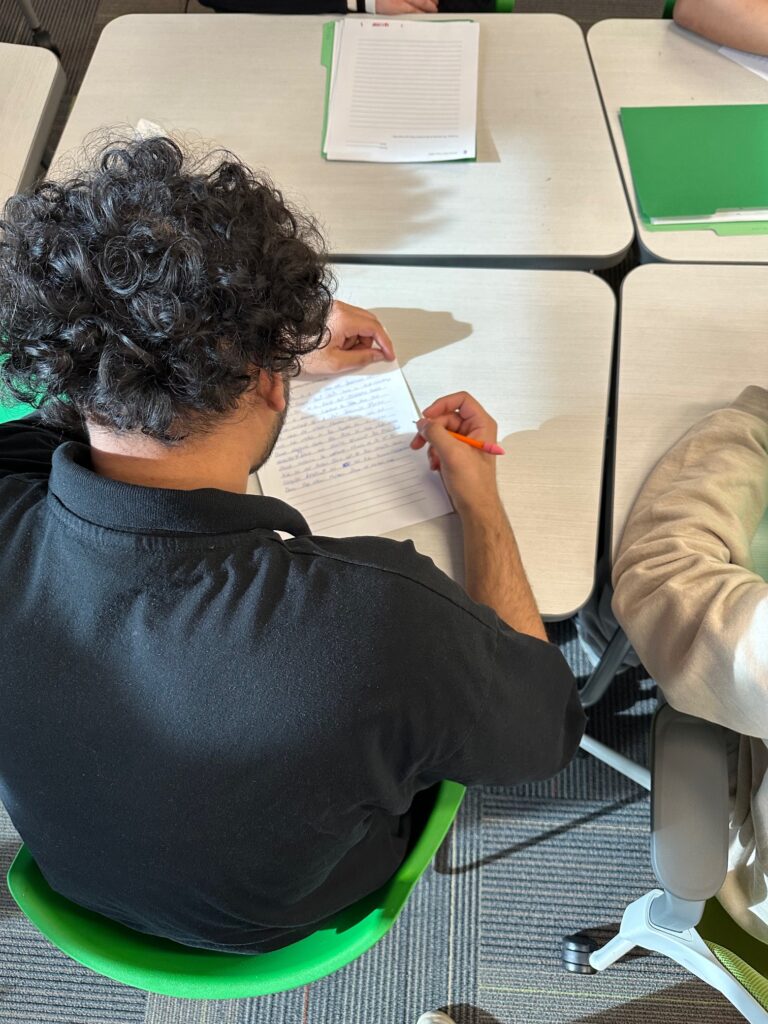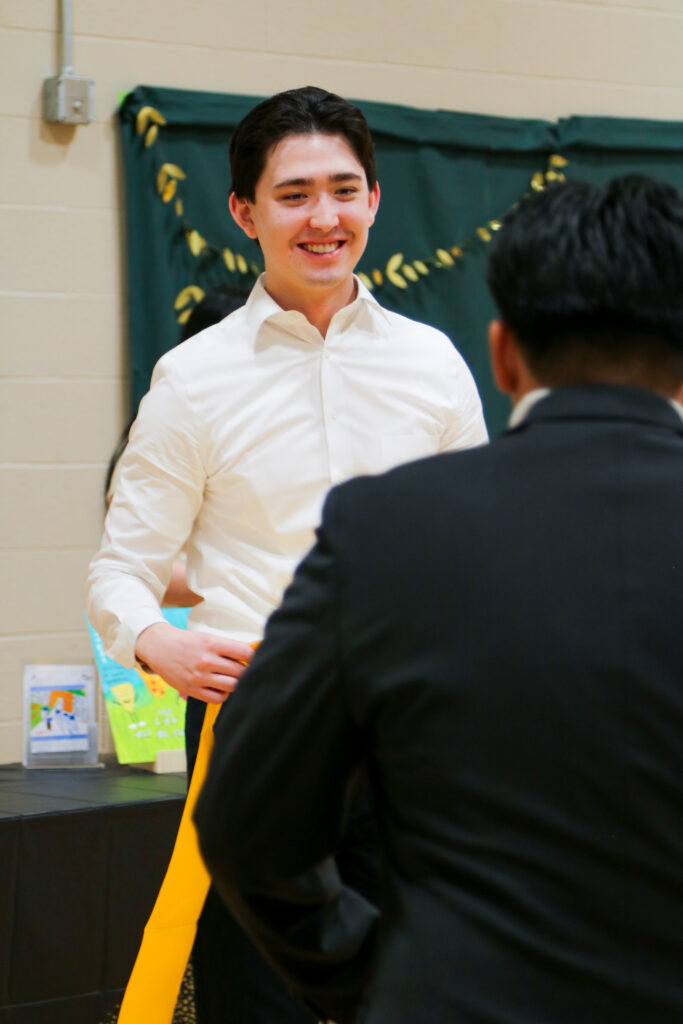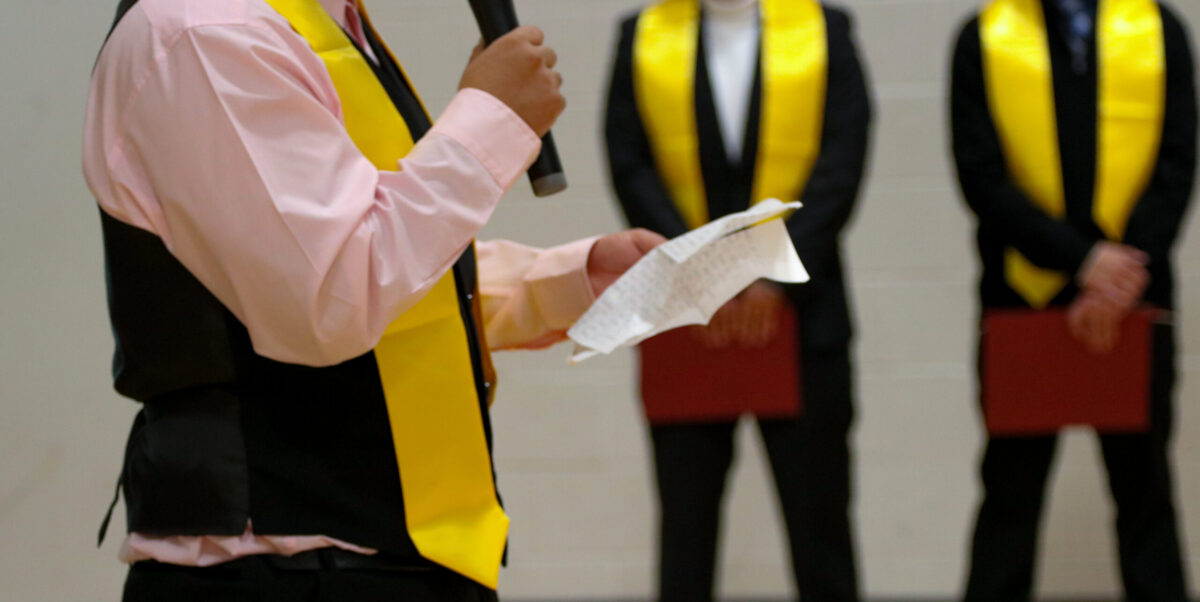Written by Lydia Bigcraft and Youth Participants of the 2025 Writers Who Hope Program
The core vision of Writers Who Hope is to cultivate meaningful spaces and empower system-involved youth as leaders of hope. This program focuses on equipping young people in state-care facilities with vital skills, particularly in emotional regulation and written and oral communication. By developing these abilities, Writers Who Hope empowers youth to effectively share their experiences and become strong advocates for hope and thriving in their communities, both within the facility and beyond.
In an effort to scale these impactful initiatives and develop the next generation of student leaders, we partnered with Weber State University’s Department of Criminal Justice to introduce Weber State student fellows to careers in public service. To facilitate this work, workshop facilitators received thorough training in trauma-informed care, effective mentorship techniques, and the Writers Who Hope curriculum, enabling them to independently lead the seven-week workshops and cultivate meaningful relationships with youth-in-care.
Please enjoy a collection of workshop reflections by community partners, student fellows, and system-involved youth. Many are the speeches the youth prepared for the formal graduation their families were invited to attend.
Quotes from Weber Valley University
“The Criminal Justice Department at Weber State University has been so fortunate to partner with the Writers Who Hope program to bring Weber State students into the detention facility. Through this experience, students have been able to get a first-hand look at juvenile detention operations, participate in activities, and facilitate a worthwhile and important program. Our students have come away from their time working with the Writers Who Hope with a new view of system-impacted juveniles, a sense of pride in the work they did, and hope for the future of juvenile corrections.”
— McKenzie Wood, PhD, assistant professor for the Department of Criminal Justice, Weber State University

Pictured: Yoselyn Martinez and Dr. Wood laughing at the celebration event.
Quotes from Student Fellows

“Helping to facilitate the Writers Who Hope program and seeing the students engage with the curriculum and build more confidence surrounding writing, discussion, and using their voice was an amazing opportunity. Each student brought their own experience and ideas, but were also able to identify their communities and practice being leaders within them. This program has had not only an impact on the kids but me as well and I think that speaks to how important this work is.”
— Sydney Gillman, student facilitator
“This was one of the most fulfilling things I’ve ever done.”
— Yoselyn Martinez, student facilitator
Pictured: Sydney Gillman talking with a youth.
Quotes from JJYS Staff
“I am very happy these young men got to experience Writers Who Hope. I personally believe they each have GREATNESS within them. WWH helped them tap into themselves and they got to see that, despite their experiences and/or lack of opportunities in the past, they can create, they can express, they can emote, they can inspire and they can feel GOOD about themselves in a way they may have never experienced before. Lydia [Bigcraft] and her team did an excellent job guiding, instructing and motivating these young men. I am proud and honored to have been able to witness everyone’s work in action.”
— Mike, lead youth development specialist with Juvenile Justice and Youth Services
Youth Perspectives
“Writers Who Hope is a program that showed me my voice still matters. This program taught me my voice is important and should be expressed to others. Throughout every session, I’ve learned and gained new lessons and experiences that I can use in the future. It taught me why my voice matters, and the importance of different leadership characteristics and traits, and gave me hope.
“I’ve learned that my voice can help change the juvenile system in a way, and change the way kids think. It continued to show me that there’s people in the world who still care for us youth, even when the system didn’t.”
— A.




facilitating workshop
“My name is C. I’m 19 years old, and some quick fun facts about me are that I’m Puerto Rican but was born and raised here in Utah, and I love to write and make music.
I want to talk about how much this group has opened my eyes. Not only have I and my group of peers looked forward to Writers Who Hope, but I’ve seen my peers open up about times, pushing past the nervousness of opening up to people who are new to us. I also want to thank those people who ran the program. You might not see it, but you have made an impact bigger than you can imagine.
Not only was this group fun but I know these times will stick with us for the rest of our lives. You have shown us ways to use our voices for good, you made us feel heard and seen for who we are instead of what we are made up to be. I hope everybody can see us for who we really are, and that we put the work in to be better, even on days we did not want to. I hope you see how important that is to us.
But onto my painting and the story behind it: The topics for our paintings were hope, community, and a few other things. The first thing that came to my mind was our debate. Now, you might be wondering, ‘what was our debate about, and how did it relate to ‘community’?’ Ever heard of pineapple on pizza? Yeah, now that’s a topic for ya. To be honest, it was pretty fun, though.
My painting has a pizza, a pineapple character, and a pepperoni character. The pineapple is asking, ‘why can’t we all come together?,’ while the pepperoni is on strike with a sign saying, ‘No pineapple plus Pizza.’ Below them both I wrote, ‘We can all be loved,’ because I believe everybody is loved whether it be by partners, family, or friends.
We can all come together and love one another and our community. We have the power to change our community for the better. It can take time, and there will be obstacles but we can overcome and stay resilient.
We can help the youth now, and the generation after that.”
— C.


“Coming into this program, I didn’t think much of it. The first couple groups we had, I thought to myself, ‘I’m never going to use any of this in real life, and they don’t really care about us.’ I mean most people really don’t, they just see us as troubled kids who don’t listen. The system tries to fix people like me, and when they don’t know how to, they lock us up and hope we fix ourselves…or they see us as a lost cause who will never learn.
But, Writers Who Hope taught me three things that I had sadly forgotten, but will always remember from now on:
- There are still good people out there in this world. People who don’t judge you by the way you look or by the mistakes you have made in the past. They are willing to actually sit down and listen to what you have to say, even when it’s hard to hear or agree with what we have to say. There is still hope in this world for people to come together and get along, despite their differences.
- Words have power behind them. They have so much power that it can start wars because of the power words hold. It can also destroy families and friendships. Yet, it does not always have to be bad. Words can do a lot of good if used right. Words can bring communities together, make relationships stronger with your families, friends, partners, or whoever it may be that you choose. Words have power behind them and I hope people will use that power to bring people together, not tear them apart.
The last thing I will always remember from this program is that I do matter. My voice does matter, and it deserves to be heard, and all of you matter and deserve to be heard as well. We are all human. Everybody should be given a chance to be heard. Nobody should be forgotten.”
— A.




“My name is S. I’m 19-years-handsome, and I was born in Texas. I was 11 when I came to Utah. I bounced back and forth, so Utah’s a second home to me.
I want to thank each and everyone of y’all for giving us your time to read to our voices that we believed to be forgotten. Before I share my experience with you, I would love to give a shoutout to Lydia Bigcraft. None of this would have been possible without her ambition, dedication, her kind heart, and her ability to see the good in people. Thank you for giving our voice meaning again.
This is actually my second time with this program, but my first time graduating it. My first time I didn’t take it too seriously. I still had barriers I put up that I wasn’t ready to bring down. Honestly, I didn’t really like showing emotion around people I didn’t know because I was constantly in survival mode. Growing up the way I did, being vulnerable got you hurt. So I learned to suppress that side of me. Slowly, I’ve been learning to live and not just survive.
I am glad I got to be a part of this program a second time, because this time around it opened my eyes to the things I used to be blind to. During our first meeting, I looked into the eyes of all the facilitators and saw no judgement, no hate, no envy. They had smiles on their faces and looked at us as humans and treated us as such.
Before this program, I was in my head. I had people telling me I was a good person, but if I was a good person, why are people trying their hardest to keep me away from society? I started to believe maybe I’m not a good person. I probably do deserve everything I’m going through. This program helped me realize that’s not the case. My voice still does matter, and even though I’ve made a lot of mistakes, there are still people who look at me for who I am today and not who I used to be.
This program reminded me of all the good people still out there. Being a part of this group has helped me in more ways than I can explain. With every session I attended, the grinches’ hearts grew bigger.
This program has given the word ‘hope’ a different meaning to me. I hope that what we have prepared or the magazine can help you, the way it has helped me. Thank you for your time.”
We are the Writers Who Hope.
— S.


Pictured: Sample of the upcoming 2025 Writers Who Hope Magazine.

